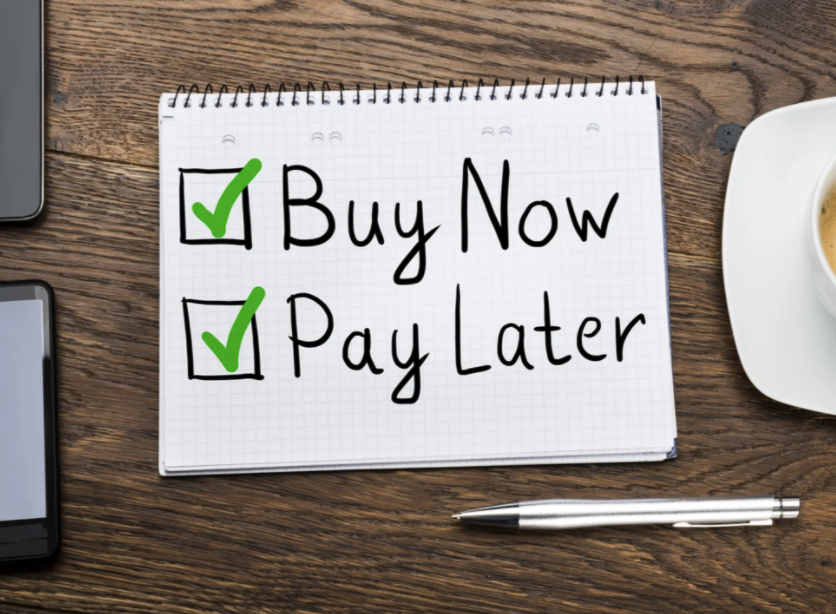
If you’re looking for apps like Klarna and Klarna alternatives, including options that involve no credit check, we’ve got a list of 14 of the best Klarna replacements.
Table of Contents
Klarna Overview
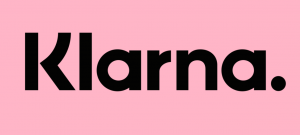
Klarna is a buy-now-pay-later (BNPL) service that lets you pay in installments.
For those who can’t afford purchases right now or wish to split them up over time, Klarna offers this capacity.
Klarna is highly popular among Gen Z. 50 percent of all Klarna ads are seen by people aged 18-24.
Pay in 4
Klarna’s most popular feature is its ‘Pay in 4’ payment plan. This enables shoppers to split their purchases into four equal installments with two-week intervals between payments.
For example, if you buy a laptop for $1,200, you would pay $300 at the time of purchase, then $300 every two weeks three times.
These installments involve no interest, but will involve late fees if the payments aren’t made on time. You can also pay it off ahead of time if that’s what you prefer.
Pay in 30
The ‘Pay in 30’ plan is also available to Klarna users, which is interest-free as well. In this case, instead of paying at checkout, shoppers can pay 30 days later.
The company value proposition is enabling customers to pay for products they actually want to use and keep, enabling them to try things out initially and return if not happy (where applicable, and as long as no damage is done to the product).
Pay Now
Pay Now is similar to buying something with your debit or credit card and paying the bill ‘net 30’ (or over time with interest).
With Klarna, you have access to their features, such as sponsored deals and notifications of price decreases from their many retail partners.
Klarna Pros & Cons
Let’s take a look at some of the pros and cons of Klarna as a BNPL provider.
| Pros | Cons |
|---|---|
| Exclusive deals and promotions from retail partners | Late payment fees |
| No prepayment penalty | Loan amounts are small |
| Options for interest-free financing | Credit bureaus aren’t notified of on-time payments |
Now let’s take a look at some of Klarna’s competitors.
Affirm
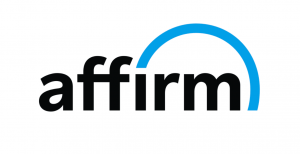
Founded in 2012 in San Francisco, Affirm is one of the more popular apps like Klarna in the buy-now-pay-later space, satisfying 10 million customers and financing 7,000 merchants.
Affirm is one of Klarna’s most prominent competitors.
While Klarna mostly targets the younger demographic, Affirm targets millennials (which makes sense because they have more money).
Affirm was found to spend a massive 64 percent of their budget on Twitter and LinkedIn.
Only 11 percent was spent on Facebook and Instagram.
Affirm enables its customers to turn many large purchases into manageable payments spread out over time.
Affirm also differs from other BNPL companies in that the loans vary merchant, so APR and payment options vary depending on where you shop rather than being constant across all merchants.
Most repayment plans fall into 3, 6, and 12 months.
Interest rates run over a wide range – from zero to 30 percent. Interest is also fixed, so it won’t compound like with credit cards.
Affirm has also partnered with Amazon.
As a result, people will soon be able to buy products on Amazon in installments.
Affirm Pros & Cons
| Pros | Cons |
|---|---|
| Variety of financing and payment plan options | Retail merchant choice isn’t as strong as Affirm |
| No transaction fees | Interest rates can be high, like credit cards |
| People can pre-qualify | Credit bureaus aren’t notified of on-time payments |
How Affirm targets both B2B and B2C audiences
Marketing to one group of people is hard.
But marketing to two different audiences, with separate needs and decisional processes, it’s another level of complexity.
However, Affirm does it very well. And here’s how.
Generally, the positioning can be summarized in this way:
- For customers: “The payment company that lets you pay your own way – it’s a company that’s on your side.”
- For businesses: “The easy payment solution that helps businesses improve their sales. Here are some stats.”
There’s also clear separation on both their website and their ads.
On their website, the homepage targets consumers but they have a dedicated “For Business” page.
Ads are more interesting…
For consumers
Affirm knows that people don’t get a loan because they need money.
They get a loan because they want a specific product.
For instance, when the iPhone 13 was released, they were running a Facebook ad showing the device and the message in the copy was: “Can I buy the new iPhone without breaking the bank?”.
For businesses
In this case, Affirm plays on the advantage of using Affirm – more sales. They also try to show why they are better than competitors.
The main difference is that when Affirm talks to businesses, they lead with statistics and numbers, demonstrating how they can improve sales.
Afterpay

Afterpay is another leading buy-now-pay-later platform, based in Melbourne, Australia.
It supports over 10 million customers globally and 7,000 merchants and is one of the most popular other companies like Klarna.
Afterpay focuses on older adults as its main customer base.
Afterpay was found to spend 53 percent of its ad budget on Facebook. 78 percent of its target audience is over 35.
So maybe Klarna isn’t the best buy-now-pay-later provider for selling expensive suits to professionals with high levels of professional income.
Similarly, if you sell expensive backpacks to TikTokers, they might not be that familiar with Afterpay.
So, on the general price spectrum: Afterpay ($$$) > Affirm ($$) > Klarna ($)
However, Afterpay is still willing to accept most everyone irrespective of their financial situation.
If you’re in the Australian market in particular, Afterpay can be a great fit.
Afterpay Pros & Cons
| Pros | Cons |
|---|---|
| Approval process is easy and straightforward | Payment schedules are strict |
| Multiple interest-free payment plans | High late payment fees |
| Lots of merchants and retail partners | Credit checks enable most everyone to get in |
Sezzle

Sezzle has more than 2.5 million customers and serves over 30,000 merchants.
The company markets itself as a public-benefit corporate and a responsible solution to buy now and pay later.
Sezzles is one of several other companies like Klarna that offers consumers the chance to make payments over 4 installments spread over 6 weeks. Moreover, payments can also be rescheduled for free one time. Each late payment is $10.
Sezzle Pros & Cons
| Pros | Cons |
|---|---|
| Credit check involves no hard pull of credit | First-time buyers face some restrictions |
| Payment plans are transparent | Refund entails contacting merchants |
| Interest-free purchases | Late fees for rescheduling payments (or failed payments) |
Zip (formerly known as Quadpay)
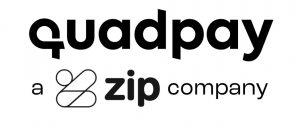
Zip, formerly Quadpay, offers its customers the standard fare of enabling payments to be split equally over 4 interest-free installments over 6 weeks.
When going through the Zip app, you must first go through an approval process before completing a purchase. Each approval involves paying 25% of the initial price and the rest being paid over 6 weeks.
There’s no APR or hidden costs.
Zip Pros & Cons
| Pros | Cons |
|---|---|
| No credit check for approval | May allow customers to spend more than they can repay |
| Payments are automatic | Approval process required before every payment |
| Staggered payment plans have low fees | Late payments are reported to the credit bureau |
Splitit
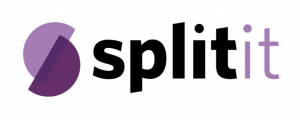
Splitit tries to differentiate itself from other payment options by offering a great user experience.
The payment options are also varied, with up to 24 payments for some costlier items.
There are also interest-free, with no late fees and a simple application process.
Splitit Pros & Cons
| Pros | Cons |
|---|---|
| No interest for on-time payments | Payment options are limited |
| No late payment fees | Retail partners are limited |
| No application process and no credit check | Visa and Mastercard only, and some retailers don’t take debit cards |
Laybuy

Laybuy is another BNPL provider based in Auckland, New Zealand that enables companies to split payments into several installments.
It focuses almost exclusively on the New Zealand market and focuses on New Zealand banks.
Most of Laybuy’s retail partners are in the fashion industry, with both brick-and-mortar and e-commerce items available for BNPL services.
When purchasing, shoppers can divide payments into 6 installments and spread them over 5 weeks, with the first payment due at checkout.
Laybuy Pros & Cons
| Pros | Cons |
|---|---|
| No-interest financing | Focuses almost entirely on New Zealand |
| No establishment or signup fees | Missed payment may result in default fees |
| Straightforward to use | Credit checks may impact credit score |
PayPal Credit
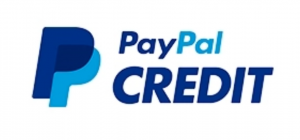
PayPal Credit was formerly known as Bill Me Later and was purchased by PayPal in 2008. It enables shoppers to make a purchase without having to use a credit card.
With PayPal Credit you can shop anywhere PayPal is accepted and get six months of financing on any purchase that’s above $99.
You need an existing PayPal account and go through the application process, which is a breeze. (It’s available for both individuals and businesses.)
All you need to do is avoid the late payment fees and pay the borrowed sum within six months.
PayPal Credit Pros & Cons
| Pros | Cons |
|---|---|
| Interest-free for the first 4 months | APR is 19.9% after 4 months |
| Easy to get going and use | Full credit check is required |
| Automatic payments and quick checkouts | Can only use with merchants that take PayPal |
GoCardless

UK-based GoCardless is a popular competitor on this list of apps like Klarna. GoCardless has over 55,000 retail partners and is popular with online stores and some e-commerce shops.
Payments are automatically handled on due dates.
It also offers simple checkouts, transparency, quick setup, and security features in case there are errors during payment.
GoCardless Pros & Cons
| Pros | Cons |
|---|---|
| Easy to setup | Can take time to make purchases |
| Low prices | Registering debit cards can be a hassle |
| Managing payments is easy | Customer service isn’t on par with others |
ViaBill
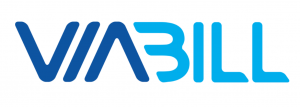
Denmark-based ViaBill was one of the early BNPL companies, having been founded in 2009.
ViaBill provides easy installment payments with zero percent interest.
The company works to integrate its platform into merchants during the checkout process, which helps to provide a more convenient shopping experience.
There’s a quick and easy application process to get approved. Once you make a purchase you can service it over time in four separate payments. The first is paid at the time of purchase.
ViaBill’s online dashboard will help you keep track of all your purchases and upcoming payments.
ViaBill is still a regional player. It is popular in many parts of Europe, but not in the US.
ViaBill Pros & Cons
| Pros | Cons |
|---|---|
| Cheap fees and easy to implement with businesses | Limited communication and merchant support |
| No prepayment fees when making purchases | Possible issues with support for international customers |
| Settlements are easy to manage | Complicated refund policy and process |
J2store
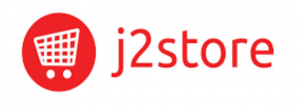
J2store is based in India and one of Asia’s burgeoning BNPL providers.
Payment plans are flexible and easy to set up.
One of the many apps like Klarna, J2store now has over 75 payment gateways and is used in various plugins, making it a great partner to help build an online business and reach a wider customer base.
Some of J2store business features include:
- vouchers, coupons, and discount codes
- search engine optimization help for businesses
- pricing based on customer (e.g., different countries)
- support for multiple languages and currencies
- easy checkout
- optimizing checkout for mobile
- support for free shipping
J2store Pros & Cons
| Pros | Cons |
|---|---|
| Easy to get up and running | More complicated than other BNPL providers |
| Plugin support to help e-com owners expand | Doesn’t work equally well on all platforms (e.g., BB, Windows) |
| Lots of high-value features | Works better in certain countries (and poorly in others) |
Sunbit

Sunbit offers exclusive offers and follows a straightforward application process.
Sunbit’s technology enables merchants to provide access to easy credit across various types of buyers. The company approves most applicants and its acceptance rates are among the highest in the buy-now-pay-later space.
Both good standing payments and due payments are reported to credit bureaus.
Sunbit Pros & Cons
| Pros | Cons |
|---|---|
| Provides access to various offers and promotions | Credit bureaus are notified of activity |
| New merchant partnerships are added regularly | Some payment plans have high interest rates |
| Easy application with no hard pull of credit | Creditworthiness dictates how much functionality you can get out of Sunbit |
Four

Florida-based Four enables shoppers to divide their purchases up into four equal installments with no interest.
There is no credit score impact and no credit checks required.
The shopper dashboard and payment options give Four a strong value proposition against the bigger names on this list, like Klarna, Affirm, and Afterpay.
The application process is quick and easy and checkout is easy to avoid lots of filling out for the buyer.
Four Pros & Cons
| Pros | Cons |
|---|---|
| Easy to use | Late payment fees |
| Fast to approve | Refund process and policies are complicated |
| Large number of payment options interest-free | Customer service isn’t as good as others |
FuturePay
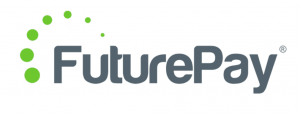
FuturePay is a payment processing service that offers merchants the ability to sell items on credit. The Lehi, Utah-based company offers some innovative solutions helping businesses expand as well and offer attractive payment options to customers.
With FuturePay’s mobile features and simple checkout process, buyers can shop from anywhere, spread payments out over months, and make purchases without needing to pay upfront.
FuturePay Pros & Cons
| Pros | Cons |
|---|---|
| Easy to setup and transparent | Technology is still improving |
| Compatible with mobile | No live support |
| Customer service is a plus | Doesn’t work well with some operating systems |
Zebit
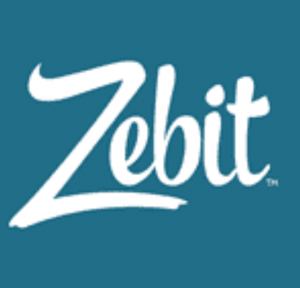
California-based Zebit has made it its mission to make online shopping available to all, no matter their circumstances.
To achieve this, they’ve partnered with popular brands and enable shoppers to pay over time without penalties and other hidden costs.
Zebit offers interest-free credit on up to $2,500.
Purchases are spread out over a six-month period, with no interest or extra fees.
Zebit Pros & Cons
| Pros | Cons |
|---|---|
| No hard pull of credit (no impact to credit score) | Income requirements |
| Flexible repayment options | Return or refund policy isn’t clear |
| No hidden costs | Higher prices than others on the list |
Conclusion
So if you were wondering whether there are any other shopping apps like Klarna that let you pay in installments over time with no interest, it turns out that there are plenty.
Zip (Quadpay), Affirm, and Afterpay are some of those most popular options.
Affirm is pairing with Amazon, so that option will be available for the world’s most popular e-commerce provider.
Ghost cards and one-time cards are available with many but will need to be checked with each individually.
When you try out many of these shopping apps, you’ll see that some work like Klarna while others are slightly different and may have more or less features available.


![Backwards 3: How to Type "Ɛ" [EASY]](https://softwareblade.com/wp-content/uploads/2022/02/Screen-Shot-2022-02-19-at-9.03.25-PM-150x150.png)